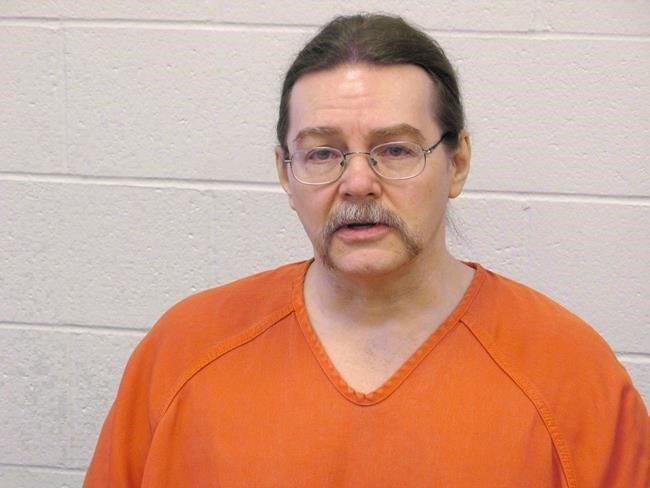
Ronald Smith is shown on Wednesday, Feb. 22, 2012, at Montana State Prison in Deer Lodge. A constitutional challenge to Montana's execution methods could have a direct impact on a Canadian on death row in the U.S. state. Lawyers for two death-row inmates, including Ronald Smith of Red Deer, Alta., are in a Helena courtroom arguing that a sedative called for under Montana's lethal injection protocols could lead to an "excruciating and terrifying" death.
Image Credit: THE CANADIAN PRESS/Bill Graveland
September 05, 2015 - 8:51 AM
CALGARY - A judge has reserved his decision on a constitutional challenge of Montana's execution methods that is likely to have an impact on a Canadian on death row in that state.
"The hearing went well and the court did reserve its ruling, but indicated that there would be a decision out shortly," said lawyer Ron Waterman of the American Civil Liberties Union following a two-day hearing in Helena.
Lawyers for two condemned inmates, including Ronald Smith of Red Deer, Alta., argued that the sedative pentobarbital that is called for under Montana's lethal injection protocols could lead to an "excruciating and terrifying'' death.
The two sides called experts that provided conflicting evidence on whether the sedative is an "ultra-fast-acting" barbiturate.
Dr. Mark Heath, an anesthesiologist from New York, testified that pentobarbital has never been classified as an ultra-fast-acting barbiturate. Dr. Roswell Lee Evans, dean of pharmacy at the Alabama college of Auburn, discussed the different onset and duration times of pentobarbital and another drug.
Doctors have indicated that "ultra-fast-acting'' isn't a common medical term, which makes it difficult to form a definitive opinion on its application.
District Judge Jeffrey Sherlock is expected to release his decision by the end of the month, but Waterman doesn't believe that will be the end of it.
"We ...recognize that the outcome of the matter will likely be appealed at least to the Montana Supreme Court regardless of the District Court's ruling," he said.
Smith, who turns 57 on Monday, was convicted in 1983 for shooting Harvey Madman Jr. and Thomas Running Rabbit while he was high on drugs and alcohol near East Glacier, Mont.
He had been taking 30 to 40 hits of LSD and consuming between 12 and 18 beers a day at the time. He refused a plea deal that would have seen him avoid death row and spend the rest of his life in prison.
Three weeks later, he pleaded guilty. He asked for and was given a death sentence. Smith later had a change of heart and has been fighting for his life ever since. He has had a number of execution dates set and overturned.
The civil liberties union filed a lawsuit in 2008 on behalf of Smith and another death-row inmate in Montana. It argued that lethal injections the state was using were cruel and unusual punishment and violated the right to human dignity.
Sherlock ruled in 2012 that the injections were unconstitutional. He also pointed to a lack of training for individuals who administer the drugs and to a discrepancy over whether two or three drugs should be used.
The judge ordered the current trial to determine whether new drugs would satisfy requirements.
Follow @BillGraveland on Twitter
News from © The Canadian Press, 2015